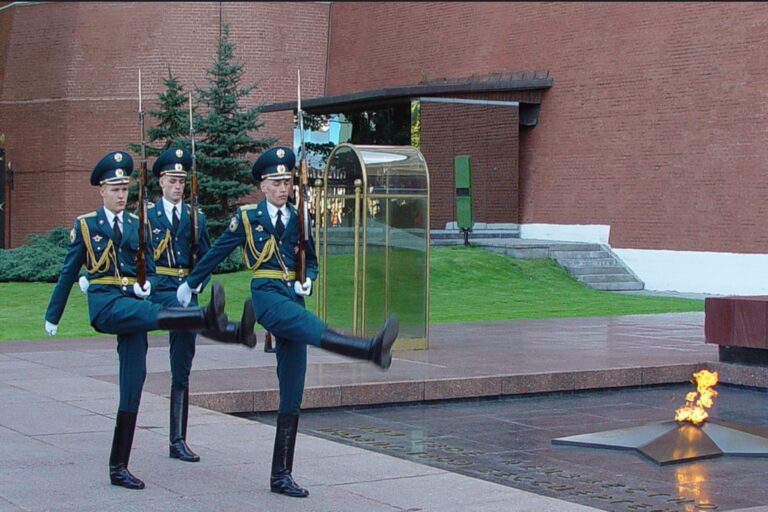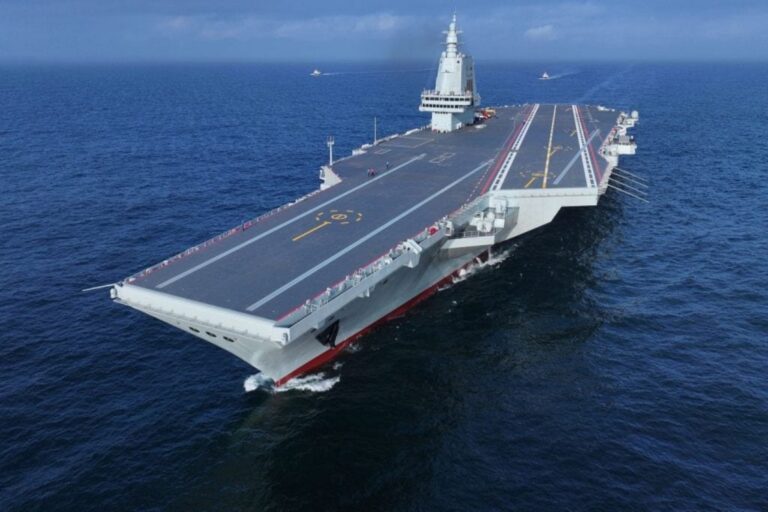U.S. Secretary of State John Kerry shakes hands with the new Turkish Foreign Minister, Mevlut Cavusoglu, before the two held a bilateral meeting on the sidelines of the NATO Summit in Newport, Wales, UK, on September 4, 2014.
Ali Cinar
In February 2017, Turkey commemorated the 65th anniversary of its membership in NATO.[1] When Turkey first joined the alliance in 1952, it served as a bulwark against communism. More than six decades later, Turkey is NATO’s southeastern flank against the chaos of the Syrian civil war and the rise of ISIS.
Yet there are voices in both Washington and Ankara that are questioning Turkey’s NATO membership due to recent disagreements between Turkey and its NATO partners over the fight against ISIS.
However, a NATO without Turkey will be less secure and less capable of taking on the security challenges emanating from the Middle East, and a Turkey without NATO will quickly find itself without time-worn allies who can help Ankara stave off the chaos on its southern border.
Following a February meeting with Turkish President Recep Tayyip Erdogan, Sen. John McCain – Chairman of the Senate Armed Services Committee – said that the U.S.-Turkey alliance is “more vital than ever” in the face of “growing disorder in Europe and the Middle East.”[2]
As the Trump administration sets its policy for countering ISIS, it should remember the crucial role played by its strategic ally, Turkey. Last August, Turkey launched its Operation Euphrates Shield in northern Syria.[3] In an operation that lasted until late March 2017, Free Syrian Army (FSA) forces backed by Turkish troops secured nearly 2,000 sq km from ISIS control, liberating towns such as Jarablus, Al-Rai, Dabiq, and Al-Bab.[4] U.S. support of Euphrates Shield was crucial to these gains against ISIS.[5]
Both Turkey and its NATO partners have already suffered devastating losses at the hands of ISIS.[6] Turkey also faces additional security threats from within. Since the Kurdistan Workers’ Party (PKK) ended a ceasefire with the Turkish state in 2015, the number of attacks conducted by the terrorist group and its urban wing, Kurdistan Freedom Hawks (TAK), have increased significantly.[7]
While Turkey was working toward eliminating these internal and external security threats, last summer’s attempted coup seriously altered the security environment in the country.[8]
Despite these exceptional security challenges, Turkey remains a critical and reliable NATO member. Incirlik Air Base continues to be the most effective and viable base from which the anti-ISIS coalition can conduct its air operations in Syria and Iraq. During a January 2017 press briefing, Col. John Dorrian, spokesperson for Operation Inherent Resolve, said that “the entire world has been made safer by operations conducted” from Incirlik.[9]
Considering the geopolitically complex region that Turkey borders, it is not difficult to understand why Turkey and its NATO partners may occasionally disagree on priorities. But without Turkey, NATO will not be rid of its Syria problem. Instead, the conflict will continue creeping into Turkey, destabilizing the country and once again bringing violence to NATO’s borders.
Turkey and NATO are no strangers to periods of disagreement, including over the conflict in Cyprus in the 1970s and the Iraq War in the 2000s. But continued NATO cooperation throughout these episodes of tension shows that Turkey and its NATO partners have time and again been able to work through their differences.
The Trump administration’s new budget proposal calling for an increase in military spending highlights the administration’s intent to clamp down on security threats to the U.S.[10] None are greater than the spread of ISIS and the continued destabilization of the Middle East. Any effective strategy to address this pressing situation will require the support of the U.S.’s global partners – and in this fight, Turkey will continue to be a critical, capable, and reliable NATO ally.
Both NATO and Turkey are better together. It was true in 1952, and its is still true 65 years later.
Ali Cinar is president of Turkish Heritage Organization, a Washington based non-profit organization working to promote discussion and dialogue around issues of importance in the U.S.-Turkey bilateral relationship as well as Turkey’s role in the international community.
________________________________________________________________________________
[1] “No:56, 18 February 2017, Press Release Regarding the 65th Anniversary of Turkey’s Membership to NATO,”Ministry of Foreign Affairs of the Republic of Turkey, accessed April 26, 2017, http://www.mfa.gov.tr/no_56_-18-february-2107_-press-release-regarding-the-65th-anniversary-of-turkey_s-membership-to-nato.en.mfa.
[2] “Statement by SASC Chairman John McCain on Meeting with Turkish President Erdoğan in Ankara, Turkey,” February 20, 2017, accessed April 26, 2017, https://www.mccain.senate.gov/public/index.cfm/press-releases?ID=0F7E848E-178D-4102-A1D6-B7D4CF5FCEBD.
[3] Kareem Shaheen, “Turkey Sends Tanks into Syria in Operation Aimed at ISIS and Kurds,” The Guardian, August 24, 2016, accessed April 26, 2017, https://www.theguardian.com/world/2016/aug/24/turkey-launches-major-operation-against-isis-in-key-border-town.
[4] See Can Kasapoğlu, “Operation Euphrates Shield: Progress and Scope,” Al Jazeera, February 3, 2017, accessed April 26, 2017, http://www.aljazeera.com/indepth/opinion/2017/02/operation-euphrates-shield-progress-scope-170201133525121.html; “Turkey Ends ‘Euphrates Shield’ Operation in Syria,” Al Jazeera, March 29, 2017, accessed April 26, 2017, http://www.aljazeera.com/news/2017/03/turkey-ends-euphrates-shield-operation-syria-170329211428970.html.
[5] See Muhammad Sulaiman, “US Bombs ISIS-Held Dabiq Town, Syrian Rebels Gain Ground,” ARA News, October 4, 2016, accessed April 26, 2017, http://aranews.net/2016/10/us-bombs-isis-held-dabiq-town-syrian-rebels-make-new-gains-ground/; Phil Stewart, “U.S. Carries Out Strikes Near Syria’s Al-Bab After Turkish Criticism,” Reuters, January 17, 2017, accessed April 26, 2017, http://www.reuters.com/article/us-mideast-crisis-usa-turkey-idUSKBN151350.
[6] See Gul Tuysuz and Steve Almasy, “Istanbul Airport Attack: 36 Dead, 147 Injured, Turkish Officials Say,” CNN, July 6, 2016, accessed April 26, 2017, http://www.cnn.com/2016/06/28/europe/turkey-istanbul-airport-attacks/; Alissa J. Rubin, Aurelien Breeden and Anita Raghavan, “Strikes Claimed by ISIS Shut Brussels and Shake European Security,” The New York Times, March 22, 2016, accessed April 26, 2017, https://www.nytimes.com/2016/03/23/world/europe/brussels-airport-explosions.html?_r=0; Lizette Alvarez and Richard Pérez-Peña, “Orlando Gunman Attacks Gay Nightclub, Leaving 50 Dead,” The New York Times, June 12, 2016, accessed April 26, 2017, https://www.nytimes.com/2016/06/13/us/orlando-nightclub-shooting.html.
[7] “Timeline of Attacks in Turkey,” Al Jazeera, February 19, 2017, accessed April 26, 2017, http://www.aljazeera.com/indepth/interactive/2016/06/timeline-attacks-turkey-160628223800183.html.
[8] Gul Tuysuz and Eliott C. McLaughlin, “Failed Coup in Turkey: What You Need to Know,” CNN, July 18, 2016, accessed April 26, 2017, http://www.cnn.com/2016/07/18/middleeast/turkey-failed-coup-explainer/.
[9] “Department of Defense Press Briefing by Colonel Dorrian via Teleconference from Baghdad, Iraq,” U.S. Department of Defense, January 4, 2017, accessed April 26, 2017, https://www.defense.gov/News/Transcripts/Transcript-View/Article/1042073/department-of-defense-press-briefing-by-colonel-dorrian-via-teleconference-from/.
[10] Dan Merica, “Trump’s ‘Hard Power Budget’ Increases Defense Spending, Cuts to State Dept, EPA,” CNN, March 16, 2017, accessed April 26, 2017, http://www.cnn.com/2017/03/16/politics/donald-trump-budget-blueprint/.



